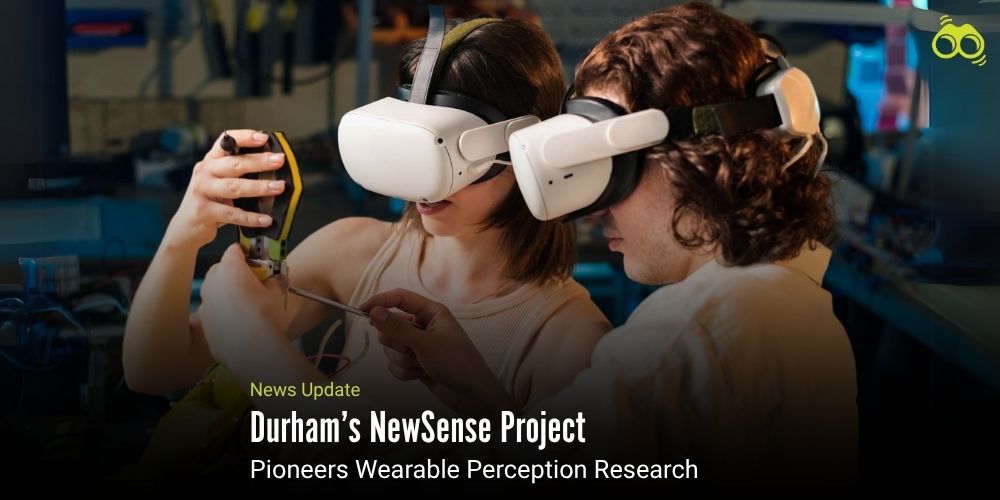Durham University’s Psychology Department Leads Research on Sensory Innovation
NewSense Project Investigates Sensory Training for Improved Navigation and Precision
The human brain’s ability to adapt to new sensory inputs is a fascinating area of research, with significant implications for individuals with sensory impairments and professionals in high-stakes environments. Recognising this, Professor Marko Nardini, from the Department of Psychology at Durham University, has received funding from the European Research Council (ERC) to explore how emerging technologies can enhance human perception. His project, NewSense, now in its fifth year, investigates whether individuals can learn to interpret new sensory information and improve their ability to navigate their surroundings.
Professor Nardini’s research into sensory perception began over two decades ago, initially focusing on infant vision. He later expanded his studies to examine how children develop spatial awareness, movement, and navigation skills. Since joining Durham University in 2013, he has secured several major research grants, supporting his work on visual processing and navigation. Building on this foundation, he launched NewSense, leading a dedicated research lab that explores how humans perceive and interact with their environment.
The NewSense project investigates whether wearable technology, combined with specialised training, can enhance human perception by enabling individuals to access new sensory information. As part of the study, participants learn to use sound in a virtual environment to improve their air hockey skills, while others are trained to judge distance using auditory cues or wrist vibrations. To gain deeper insights, the research team employs brain imaging, mathematical modelling, and participant interviews, helping to understand how perceptual abilities develop and strengthen. The project aims to advance knowledge of sensory function, with findings that could be highly beneficial for individuals with sensory impairments and professionals such as surgeons and firefighters, who rely on heightened sensory precision in their work.
Beyond its immediate applications, the NewSense project contributes to a growing field of research that examines how technology can expand human sensory capabilities. With continued advancements, this work could pave the way for new methods of sensory enhancement, improving both daily life and professional performance. Ultimately, this research highlights the potential of technology to transform human perception, offering innovative solutions for both accessibility and professional efficiency.
Editor’s Note:
The NewSense project is more than just an exploration of sensory perception,it represents a significant step towards enhancing human interaction with technology. By investigating how wearable devices and training can expand sensory capabilities, this research opens new possibilities for individuals with sensory impairments, allowing them to navigate the world more safely and efficiently. Moreover, professionals in medicine, emergency response, and high-precision industries could benefit from refined sensory awareness, improving their accuracy and performance in critical situations. Looking ahead, the findings from NewSense could influence future innovations in assistive technology, bridging the gap between humans and artificial sensory enhancements. The project’s combination of neuroscience, engineering, and psychology has the potential to reshape how people interact with their environments, offering solutions that go beyond conventional limitations.
Skoobuzz views this groundbreaking research as a foundation for future integrated sensory systems. As technology advances, it has the potential to expand human capabilities in ways once considered impossible.














0 Comments (Please Login To Continue)